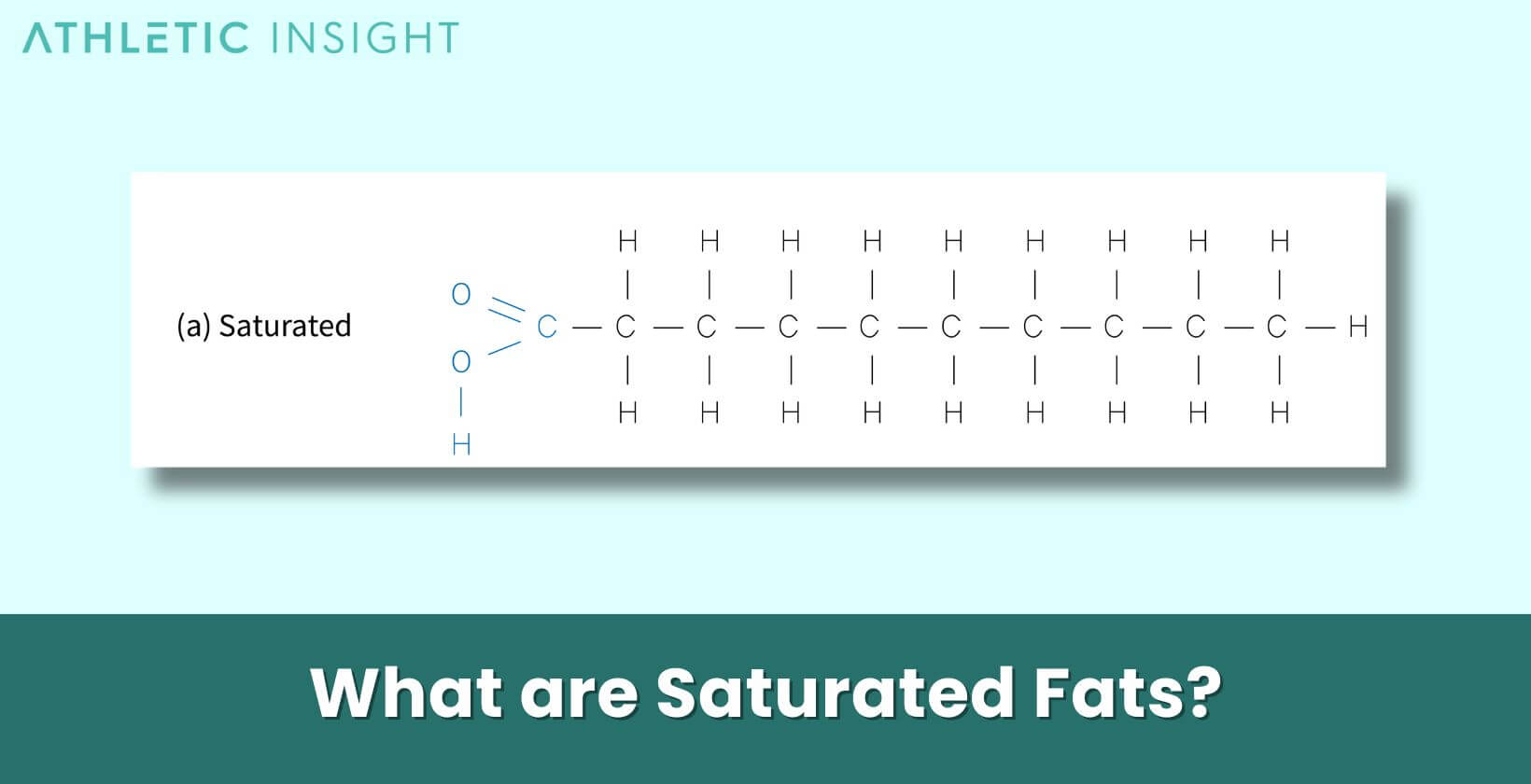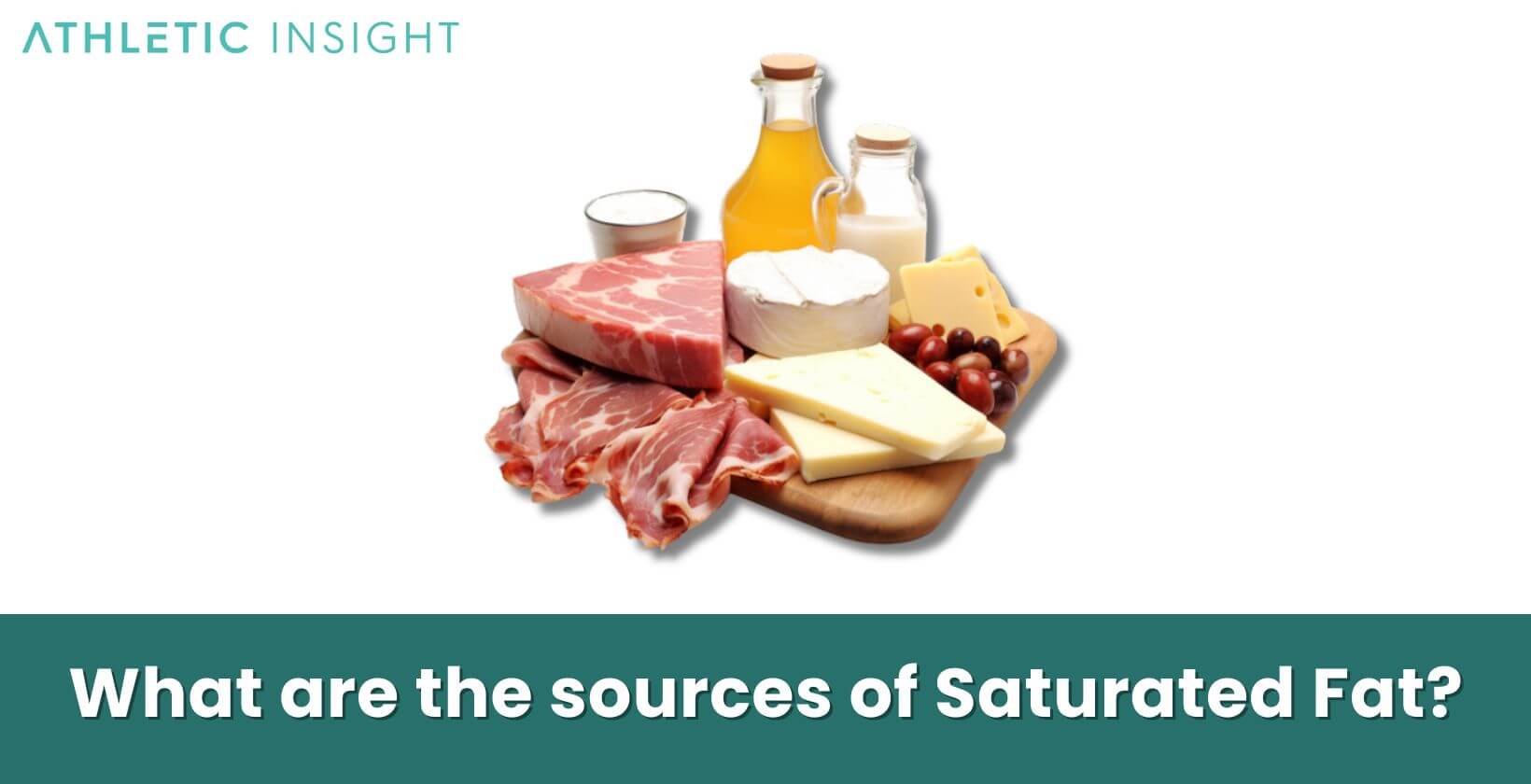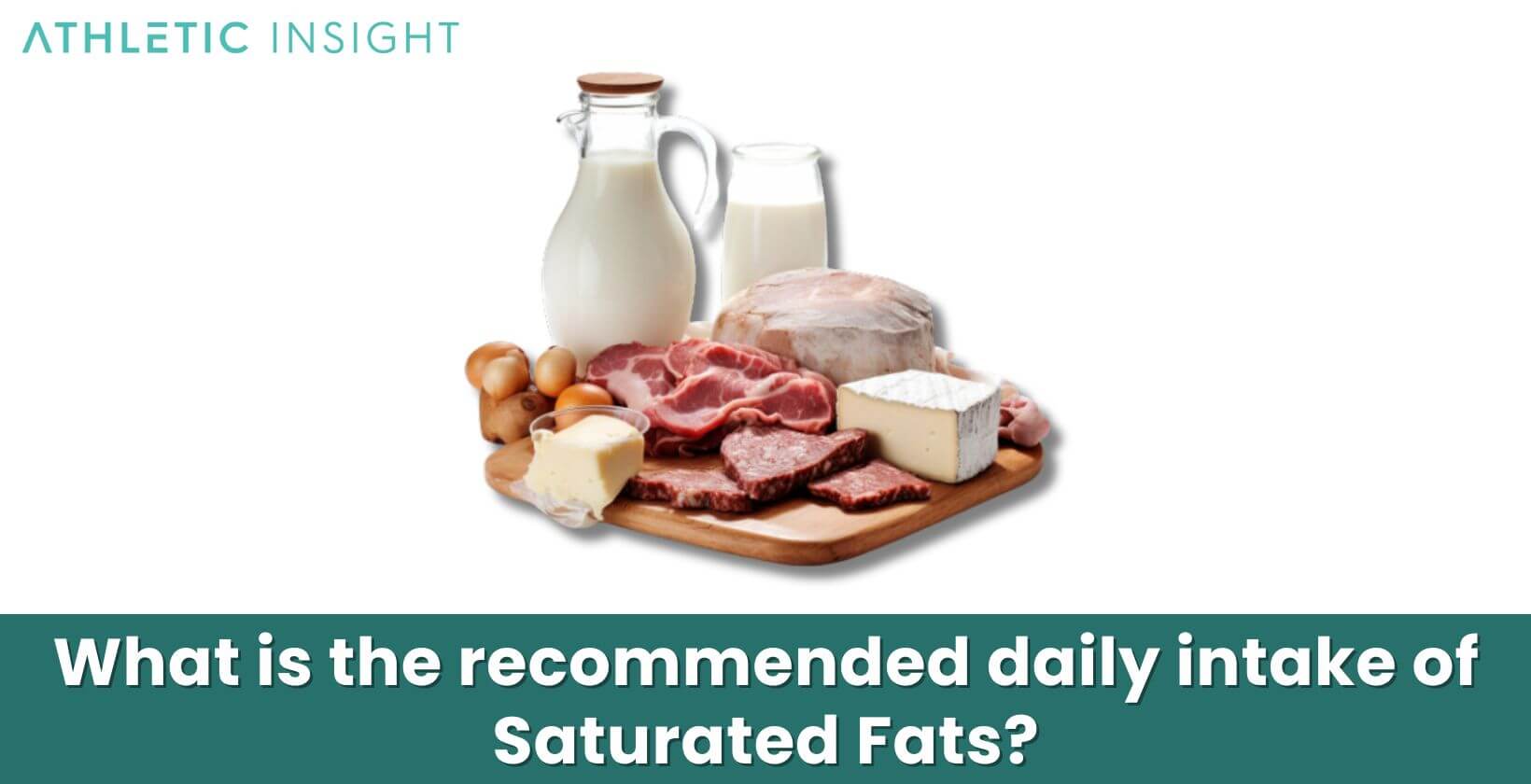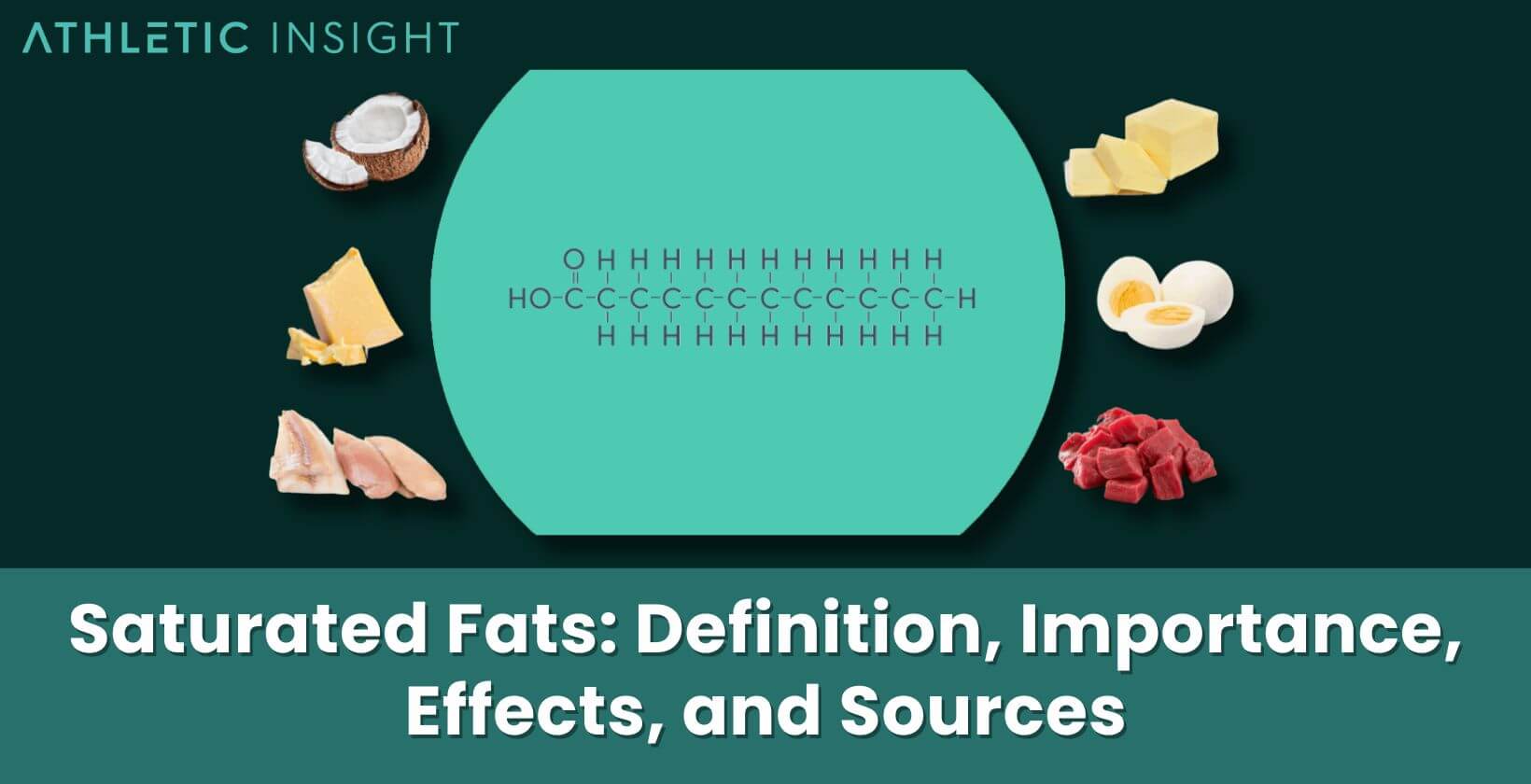Saturated fats are a vital part of the human diet, yet they are often misunderstood. They are a type of fat found in various foods, both animal and plant-based, and play crucial roles in the body’s functioning. This article will discuss the definition, importance, effects, and sources of these fats in detail.
Understanding the nature of saturated fats is vital for making informed dietary choices. Debates around their impact on health and whether saturated fat is bad have given rise to numerous misconceptions, making it imperative to separate fact from fiction.
What are Saturated Fats?
Saturated fats are a category of fats characterized by having no double bonds between the individual carbon atoms of the fatty acid chain. This means that they are “saturated” with hydrogen atoms. They are typically solid at room temperature, which distinguishes them from unsaturated fats that are usually liquid.

The structure of saturated fats has an impact on how they behave in the body. Unlike their unsaturated counterparts, saturated fats increase levels of both beneficial HDL cholesterol and harmful LDL cholesterol. Their effect on health, therefore, is a topic of ongoing research and discussion.
What is the other term for Saturated Fats?
Saturated fats are sometimes referred to as “solid fats” due to their physical state at room temperature. This term is not specific to saturated fats but includes any fat that is solid at room temperature, such as butter or lard.
When discussing nutrition, the term “solid fats” is often used interchangeably with saturated fats. However, it’s important to remember that not all solid fats are saturated fats, and not all saturated fats are solid. This term’s usage can sometimes lead to confusion, making it important to understand the precise nature and characteristics of saturated fats.
How is Saturated Fat made?
Saturated fats occur naturally in many foods. They are primarily made by the bodies of animals, which synthesize them as a way of storing energy. Plants can also produce saturated fats, although to a lesser extent.
Although they can be synthesized in a laboratory, the majority of the saturated fats that humans consume come from food. It’s a misconception that all saturated fats are bad for health. Some saturated fats are essential for the body’s functioning and need to be obtained through diet.
What is the importance of Saturated Fat?
Saturated fat serves several vital functions in the body. For instance, it provides a concentrated source of energy, helps in the absorption of fat-soluble vitamins like A, D, E, and K, and is involved in the production of certain hormones.
The human body also requires some amount of saturated fat for overall health. While it can produce some of these fats on its own, it still needs to obtain others from the diet. These dietary fats are known as ‘essential fats’ because they are crucial to the body’s health and functionality.
What is the primary function of Saturated Fat?
The primary function of saturated fats in the body involves supplying energy. Upon consumption, the body breaks down these fats, resulting in the release of energy which can be used to fuel bodily functions and activities. When in excess, the body stores them for later use.
Apart from energy provision, saturated fats contribute to the structure of cell membranes and serve as a base for the production of certain hormones. They play a key role in the absorption of fat-soluble vitamins, a process critical for maintaining good health and well-being.
What is the effect of Saturated Fat in the body?
When consumed in moderate amounts, saturated fats can benefit the body. Besides providing energy, they assist in vitamin absorption and hormone production. Yet, it’s their impact on cholesterol levels that has made them a topic of discussion in the health sector.
So, is saturated fat bad? While saturated fats raise levels of LDL (low-density lipoprotein) cholesterol, known as the ‘bad cholesterol,’ they also increase levels of HDL (high-density lipoprotein) cholesterol, the ‘good cholesterol.’ So, the exact role in heart disease is complex and still being explored by scientists.
What is the effect of too much Saturated Fat?
Excessive consumption of saturated fats can lead to various health problems. Most notably, these fats can raise the levels of LDL cholesterol in the blood, which can build up in the arteries and lead to heart disease or stroke.
Other potential effects include weight gain, as fats are higher in calories than proteins and carbohydrates. Increased intake of certain types of saturated fats can also contribute to insulin resistance and inflammation, potentially leading to type 2 diabetes.
How does too little Saturated Fat affect the body?
While too much saturated fat can be harmful, too little can also lead to health problems. Fats, including saturated fats, are essential for the absorption of vitamins A, D, E, and K. Therefore, an insufficient intake can result in a deficiency of these vitamins.
Inadequate intake of certain types of saturated fats can also impact hormone production, as these fats form the building blocks of many hormones. Symptoms of inadequate fat intake can vary but might include dry skin, hair loss, or poor wound healing.
What are the sources of Saturated Fat?
Saturated fats are found in a wide variety of foods. While they are commonly associated with animal products, such as meat and dairy, they are also present in various plant foods.
- Animal Based Foods (fatty meats, high-fat dairy products, poultry with skin, lard and tallow)
- Plant Based Foods (palm kernel oil, coconut oil, palm oil)

The concentration of saturated fats can differ significantly among food sources. For instance, while butter and cream are high in saturated fats, lean meats and low-fat dairy products contain less. Likewise, certain plant oils are high in saturated fats, while others contain mostly unsaturated fats.
Animal-Based Sources
Many animal-based food sources are rich in saturated fats. These include various meats, dairy products, and certain types of fish. The specific concentration of saturated fats can vary greatly depending on the particular food source and how it is prepared.
It’s important to note that while these sources provide essential nutrients, their high saturated fat content can lead to health issues when consumed excessively. As a result, moderation and balance are key when including these foods in your diet.
- Fatty Meats
- High-Fat Dairy Products
- Poultry with Skin
- Lard and Tallow
1. Fatty Meats
Fatty meats, such as beef, pork, and lamb, are significant sources of saturated fats. These meats contain a high proportion of fat, much of which is saturated. They also provide other nutrients, such as protein and iron.
Although they are nutrient-dense, the high saturated fat content of these meats means they should be consumed in moderation. Leaner cuts can be a healthier choice as they contain less saturated fat.
2. High-Fat Dairy Products
High-fat dairy products, including whole milk, cheese, and butter, are among the top sources of saturated fats. Besides being a rich source of calcium, they provide other nutrients such as protein and vitamin D.
Again, moderation is advised when consuming these foods. Opting for lower-fat alternatives can help reduce your intake of saturated fats while still providing the nutritional benefits of dairy.
3. Poultry with Skin
Poultry, especially when consumed with the skin, can contribute significantly to your intake of saturated fats. This includes foods such as chicken, turkey, and duck.
Removing the skin from poultry can significantly reduce its saturated fat content. Choosing leaner cuts, such as breast meat, can also help to lower your intake.
4. Lard and Tallow
Lard (pig fat) and tallow (beef or mutton fat) are very high in saturated fats. They are often used in cooking for their rich flavor and high smoke point.
While these fats can enhance the taste of dishes, they should be used sparingly due to their high saturated fat content. Healthier alternatives include plant-based oils that are lower in saturated fats.
Plant-Based Sources
While animal products are the most common sources of saturated fats, certain plant-based foods can also contribute to your intake. These primarily include tropical oils, such as coconut and palm oils. These plant-based sources provide a vegan-friendly option for those who do not consume animal products.
- Palm Kernel Oil
- Coconut Oil
- Palm Oil
1. Palm Kernel Oil
Palm kernel oil is derived from the seeds of the oil palm tree. With its high saturated fat content, it is often used in baking and frying, and is a key ingredient in many processed foods.
Although it can contribute to the flavorful quality of dishes, its high level of saturated fats necessitates moderate use. It’s also worth noting that environmental concerns have been raised about the large-scale production of palm oils, including palm kernel oil.
2. Coconut Oil
Coconut oil, extracted from the meat of coconuts, is another plant-based source of saturated fats. Its unique flavor and high smoke point make it a favored choice in both cooking and baking.
Despite its popularity, the high concentration of saturated fats in coconut oil means it should be used judiciously. It’s also an important source of medium-chain triglycerides, fats that are metabolized differently and can have health benefits.
3. Palm Oil
Palm oil, obtained from the fruit of the oil palm tree, is yet another plant-based saturated fat source. It is commonly used in cooking, especially in certain global cuisines, and is a staple in many processed foods.
As with other high-saturated fat oils, use palm oil sparingly due to its potential impact on heart health. As with palm kernel oil, environmental sustainability is also a factor to consider when using palm oil.
How can Saturated Fat be incorporated into a Diet?
Incorporating saturated fats into a diet should be done with care. While these fats are an essential part of the diet, providing energy and supporting various body functions, they can also contribute to health issues when consumed excessively.
Balance is key. Consuming a varied diet that includes a mix of different types of fats can help ensure you get the nutrients you need without overdoing it on saturated fats. This can involve choosing leaner cuts of meat, opting for low-fat dairy products, and using oils that are low in saturated fats.
What type of Diet utilizes the use of Saturated Fat?
The ketogenic diet, commonly known as the keto diet, utilizes the consumption of saturated fats. This diet prioritizes high-fat, low-carbohydrate foods, pushing the body into a state of ketosis, where it burns fats instead of carbohydrates for energy.
While the keto diet may have potential benefits such as weight loss and improved blood sugar control, it also involves consuming higher amounts of saturated fats. So, it’s essential to monitor the types of fats being consumed and to balance them with unsaturated fats for overall heart health.
What is the recommended daily intake of Saturated Fats?
As per dietary guidelines, the recommended daily intake of saturated fats should be less than 10% of total daily calories. For an average adult consuming 2000 calories per day, this translates to less than 22 grams of saturated fat.

These recommendations serve as a general guideline to ensure adequate nutrient intake while reducing the risk of heart disease and other health issues associated with high saturated fat consumption. Remember, these numbers can vary based on individual dietary needs, lifestyle, age, and overall health.
Are Saturated Fats unhealthy?
No, saturated fats are not unhealthy in moderation. While saturated fats are often linked to high cholesterol levels and heart disease, they also have essential roles in the body, such as providing energy, aiding in vitamin absorption, and hormone production.
However, consuming too much saturated fat can raise your cholesterol, leading to heart disease. Therefore, while not categorically unhealthy, saturated fats should be consumed in moderation, in line with dietary guidelines.
Are Saturated Fats not good for weight loss?
Yes, saturated fats are generally not recommended for weight loss. Still, while saturated fats are high in calories, and eating an excess can lead to weight gain, they can also provide a feeling of fullness that can aid in weight control.
However, when it comes to weight loss or maintaining a healthy weight, it’s the total calorie intake and expenditure that matters the most. If you’re trying to lose weight, it’s still important to monitor your intake of all types of fats, including saturated fats.
Are Saturated Fats good for you?
Yes, saturated fats can be good for you as they serve several crucial functions in your body. They provide energy, support cell structure, aid in nutrient absorption, and are involved in hormone production. Yet, it’s critical to balance your intake, as excessive consumption can lead to health concerns like elevated cholesterol and heart disease.
In essence, while saturated fats have a place in a balanced and varied diet, they should not be the primary source of dietary fats. Emphasis should be on foods rich in unsaturated fats like avocados, nuts, seeds, and oily fish, which are associated with beneficial effects on heart health.
Is Saturated Fat the Most Common Type of Fat?
No, saturated fat is not the most prevalent type of fat found in your diet or in nature. Saturated fats, characterized by having no double bonds in their chemical structure, are common in animal-based foods like meat and dairy products. However, both polyunsaturated and monounsaturated fats are found in larger quantities in a variety of foods.
How do Saturated Fats differ from Unsaturated Fats?
Saturated and unsaturated fats differ primarily in their chemical structure and physical properties. Saturated fats lack double bonds between the individual carbon atoms in their molecular structure, leading to a straight and rigid formation. This structure allows them to pack tightly and remain solid at room temperature.
Unsaturated fats, on the other hand, contain one or more double bonds, which introduce kinks into their structure, preventing them from packing closely together. As a result, they tend to be liquid at room temperature. The unsaturated fats are often associated with health benefits, such as reducing harmful cholesterol levels and providing essential fats that your body needs but can’t produce itself.
What is the difference between Saturated Fats and Trans Fats?
Saturated fats and trans fats vary in their chemical structure and impact on health. As previously mentioned, saturated fats have no double bonds and remain solid at room temperature. While they can contribute to high cholesterol if overconsumed, they also serve essential functions in the body.
Trans fats, however, are primarily produced industrially by adding hydrogen to liquid vegetable oils to make them more solid, a process called hydrogenation. Trans fats can raise harmful LDL cholesterol, lower protective HDL cholesterol, and increase the risk of heart disease. Because of the negative health impact of trans fat, many countries have taken steps to reduce or ban their use in foods.



